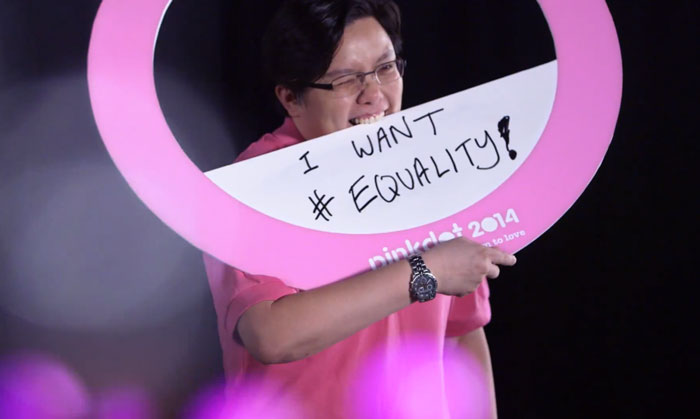 Singapore: Gay activists in Singapore say they have to balance between toeing the official line and pushing boundaries in order to bring about equality for the gay community in a country that still nurtures colonial-era anti-gay prejudices.
Singapore: Gay activists in Singapore say they have to balance between toeing the official line and pushing boundaries in order to bring about equality for the gay community in a country that still nurtures colonial-era anti-gay prejudices.
“You can’t talk about gay issues without talking about politics,” said Alex Au in a discussion called Human Worth and Dignity that was hosted by the Humanist Society of Singapore on Aug. 10, according to theindependent.sg.
Au shared poignant anecdotes about his engagement as a gay man and activist with the Singapore state and society. He said it had been 21 years since he first joined People Like Us, a local gay advocacy group that had “run into trouble with the authorities.”
He recalled how in 2000 The Straits Times, Singapore’s main English language daily had interviewed him but had for the sake of “balance” an interview with a psychologist positioned alongside his article.
“I got the bigger share of the feature, so that was progress in a way,” he said although he did express skepticism as to over just how much progress has been made.
Lynette Chua, author of Mobilizing Gay Singapore: Rights and Resistance in an Authoritarian State likened gay activism in Singapore to “pragmatic resistance.” Gay activists, according to her, have to balance between “toeing the line” and “pushing boundaries.”
She recalled how when a gay haunt was raided by the police, its patrons wrote a letter of protest framed as a complaint against the police officers for overstepping their boundaries. “There was nothing about gay rights.”
Gay rights are a contentious issue in Singapore, with many either wanting to retain or abrogate a British colonial-era “Section 377A” law that criminalizes sex between men with imprisonment for a term which may extend to two years.
Many Christian and Muslim religious groups in particular want no debate on discarding the law and have become vociferous in opposing gay rights ever since Singapore recently witnessed its largest gay-rights rally with 26,000 people attending.
Vincent Wijeysingha, Singapore’s first openly gay politician turned activist said “a radical critique of religion” has to take place but noted that people would have to negotiate laws such as The Religious Harmony Act. Nevertheless, he felt it was important to “begin the process of questioning religion.”
Paul Tobin, president of the Humanist Society talking on LGBT issues said: “I think it’s about getting people on your side, people who may be your opponents at the moment, but as long as they accept you for who you are, everybody wins.”
The government claims it does not actively enforce anti-gay laws but Singapore courts are notorious for throwing out anti-gay discrimination lawsuits and proceeding against those who question that decision.
Singapore’s National Library Board also recently banned from libraries three children’s books featuring same-sex couples.
Source: theindependent.sg
